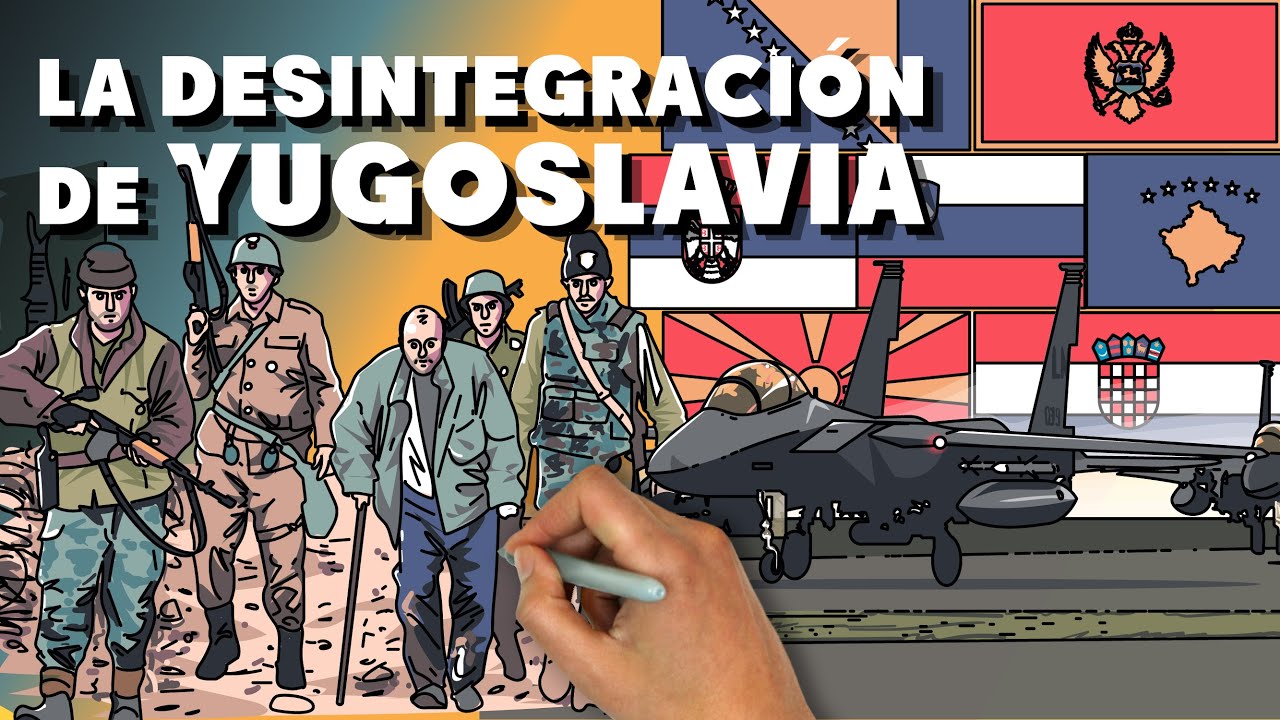Bosnian War - Genocide: History, Key Dates
Summary
TLDRThe Bosnian War, which occurred in the early 1990s, was a complex conflict that followed the dissolution of Yugoslavia. Bosnia and Herzegovina, with its diverse ethnic groups, found itself at the center of a struggle for independence and territorial control. The war began after Bosnia voted to secede from Yugoslavia, leading to a siege of Sarajevo and widespread ethnic cleansing. The conflict saw the involvement of Serbian forces, the Yugoslav People's Army, and later, NATO air strikes. Atrocities such as genocide, mass rape, and the destruction of cultural heritage were prevalent. The war officially ended with the Dayton Peace Agreement in 1995, which divided Bosnia into two entities and initiated a period of reconstruction and reconciliation. The conflict resulted in significant loss of life, displacement, and long-lasting effects on the region.
Takeaways
- 🏰 The Bosnian War involved the longest siege in modern times, with significant territorial disputes and ethnic conflicts.
- 🌍 Bosnia and Herzegovina changed hands multiple times, joining Yugoslavia in 1918 and becoming independent in 1992 after a referendum.
- 🗳️ The Serbian Republic of Bosnia and Herzegovina was declared by Serb nationalists who boycotted the independence referendum.
- 💣 Bosnia's population was divided into Slavic Muslim Bosniacs, Orthodox Christian Serbs, and Catholic Croats, leading to a complex three-way conflict.
- 🏹 The Serbs aimed to create a 'Greater Serbia' and pursued an ethnic cleansing campaign against Muslims.
- 🏙️ The Siege of Sarajevo began in April 1992, lasting 4 years and resulting in the deaths or disappearances of approximately 10,000 people.
- 🔪 1992 marked the start of genocide against non-Serb populations in Bosnia, with mass intimidation, torture, and killings.
- 🔄 A 'war within a war' emerged as Croat forces shifted from defense to offense, leading to the Croat-Bosniac War.
- ✈️ NATO intervened in 1994 with air strikes against the Serbs, which helped to end some of the fighting but did not stop the conflict entirely.
- 🗺️ The Dayton Peace Agreement in 1995 officially ended the war, dividing Bosnia and Herzegovina into two entities and initiating a NATO-led peacekeeping mission.
- 🕊️ Despite the end of the war, the effects of the conflict, including genocide, mass rape, and the displacement of hundreds of thousands of people, continue to impact the region.
Q & A
What event marked the start of Bosnia's path to independence from Yugoslavia?
-The path to independence started with Slovenia, Croatia, and Macedonia voting to leave Yugoslavia in the early 1990s.
What were the main ethnic groups in Bosnia and Herzegovina before the war?
-The main ethnic groups were Slavic Muslim Bosniaks (almost half of the population), Orthodox Christian Serbs (just over 30%), and Catholic Croats (17%).
How did Serb nationalists in Bosnia react to the country's independence referendum?
-Serb nationalists boycotted the referendum vote and favored creating their own Republic called the Serbian Republic of Bosnia and Herzegovina.
When was the Republic of Bosnia and Herzegovina declared?
-The Republic of Bosnia and Herzegovina was declared at the beginning of March 1992.
What event marked the beginning of the Siege of Sarajevo?
-The Siege of Sarajevo began in April 1992 when Serb forces took control of the predominantly Muslim capital city.
What was the impact of the Siege of Sarajevo on the city's population?
-The four-year siege resulted in the deaths or disappearances of roughly 10,000 people, including many children, and forced residents to evade sniper fire while struggling for basic human needs.
What was the goal of the Serbs' actions during the Bosnian War?
-The Serbs aimed to claim new territory for Greater Serbia and ethnically cleanse the population of Muslims.
How did the Croat-Bosniak War impact the conflict in Bosnia?
-The Croat-Bosniak War, a war within a war, overshadowed much of 1993 and shifted Croat forces from a defensive stance to seizing land.
What was NATO's role in the Bosnian War?
-NATO intervened by launching airstrikes against the Serbs, which helped end some sieges and allowed Bosnian government forces to reclaim lost territory.
What was the outcome of the Dayton Peace Agreement?
-The Dayton Peace Agreement, reached in November 1995, marked the official end of the war, split Bosnia and Herzegovina into two independent states, and initiated a NATO-led peacekeeping effort.
What were some of the atrocities committed during the Bosnian War?
-The atrocities included genocide, mass rape, emotional subjugation, and numerous massacres, such as the massacre in Srebrenica.
What were the long-term effects of the Bosnian War?
-The war caused significant loss of life, the destruction of historic buildings and monuments, the displacement of hundreds of thousands of people, and left lasting psychological and social impacts on the population.
Outlines

هذا القسم متوفر فقط للمشتركين. يرجى الترقية للوصول إلى هذه الميزة.
قم بالترقية الآنMindmap

هذا القسم متوفر فقط للمشتركين. يرجى الترقية للوصول إلى هذه الميزة.
قم بالترقية الآنKeywords

هذا القسم متوفر فقط للمشتركين. يرجى الترقية للوصول إلى هذه الميزة.
قم بالترقية الآنHighlights

هذا القسم متوفر فقط للمشتركين. يرجى الترقية للوصول إلى هذه الميزة.
قم بالترقية الآنTranscripts

هذا القسم متوفر فقط للمشتركين. يرجى الترقية للوصول إلى هذه الميزة.
قم بالترقية الآن5.0 / 5 (0 votes)






